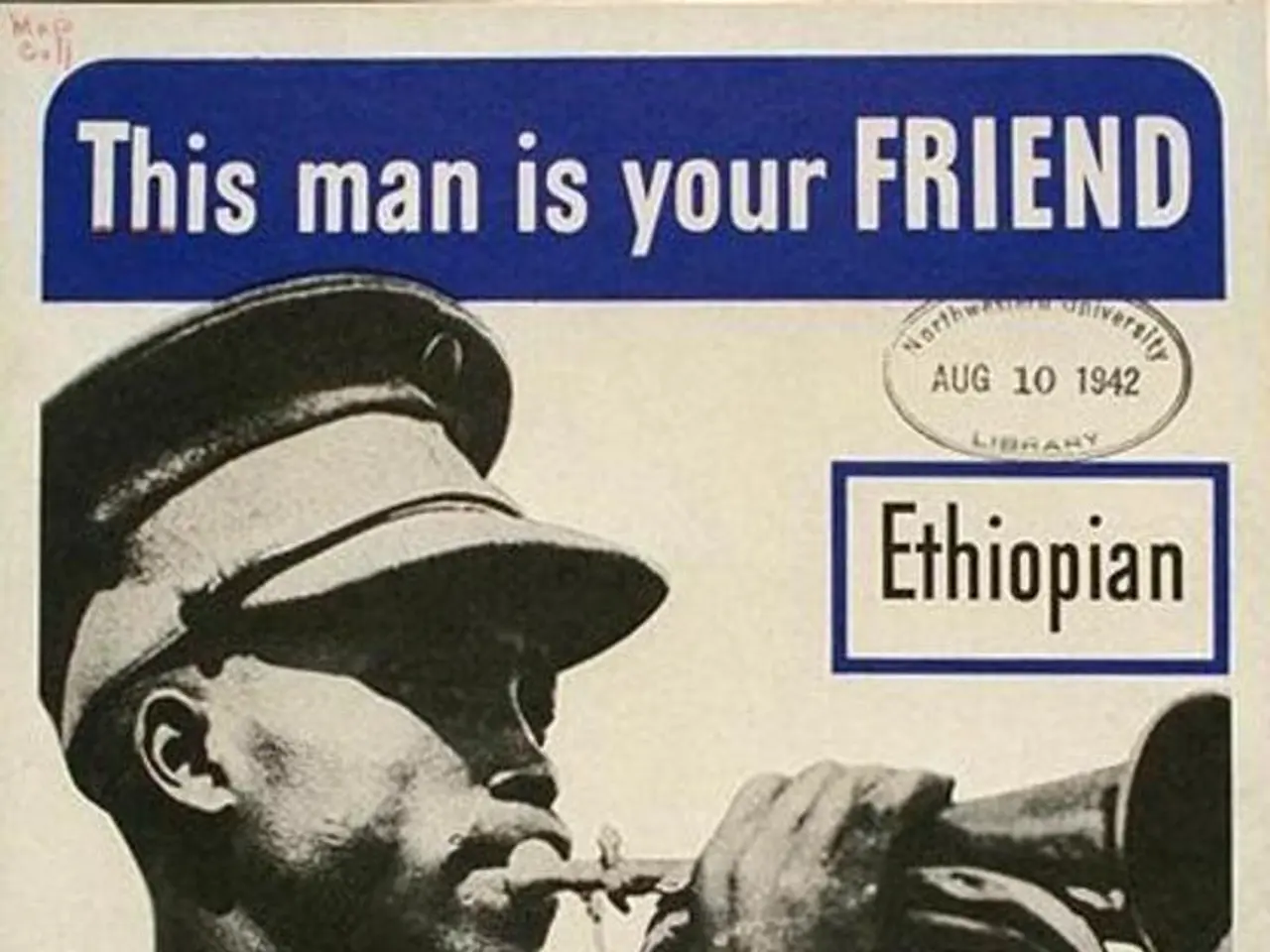Descendants of Holocaust Survivors Urge for a Cessation of Hostilities
In a poignant display of solidarity, descendants of Holocaust survivors are using their personal experiences of suffering, displacement, and injustice to advocate for Palestinian rights and call for ceasefire. This movement, led by figures like Rabbi Elliot Kukla, emphasizes the importance of justice, human rights, and ending oppression.
Rabbi Elliot Kukla, a rabbi, author, and activist, has publicly articulated that his Jewish and queer backgrounds of suffering contextually inform his pro-Palestinian activism, especially during conflicts such as the Gaza war. His approach often involves challenging the dominant narratives within Jewish and broader communities, seeking to balance recognition of Jewish history and trauma with solidarity for Palestinian rights.
Rabbi Kukla's grandfather, Max, was a political prisoner due to his activism. Max's neighbours showed remarkable courage, arranging false Aryan papers for Rabbi Kukla's grandmother after his arrest and even hiding, bathing, feeding, and protecting Rabbi Kukla's infant father. Max tragically died in Auschwitz at the age of 24.
In a powerful gesture, Rabbi Kukla travelled to Brussels to learn about his grandfather Max's history. Nearly a dozen political prisoners from Max's Brussels neighbourhood were identified in the National Archives of Belgium.
The Jewish Network for Palestine (JNP), a group of descendants of Holocaust survivors, has staged a number of rallies for a ceasefire this year, attracting thousands of protestors. Notable members include Haim Bresheeth, a child of Auschwitz survivors, who co-founded the JNP in Britain.
The JNP's advocacy is not limited to the Jewish community. They are joined by organisations like Jewish Voice for Peace, whose statement on Holocaust Remembrance Day, authored by the descendants of survivors, reads: "We are not alone in our trauma, and we have a collective duty to prevent others from experiencing similar harm."
However, this advocacy can sometimes create tensions within Jewish and queer spaces due to differing views on the Israeli-Palestinian conflict. Rabbi Kukla's perspective emphasizes solidarity born from a shared understanding of marginalization and trauma, motivating advocacy against occupation and for peace.
The 2023 FBI crime report showed a sharp rise in hate crimes towards all minority groups in America, including antisemitic and Islamophobic incidents. This underscores the importance of these advocacy efforts, as well as the need for education and dialogue that promotes understanding and empathy.
Notably, U.S. President Joe Biden compared the attacks of October 7th to the Holocaust. However, Raz Segal, a genocide scholar, argues that such comparisons constitute "a textbook use of the Holocaust not in order to stand with powerless people facing the prospect of genocidal violence, but to support and justify an extremely violent attack by a powerful state and, at the same time, distort this reality."
Palestinian-American writer Sarah Aziza emphasises the importance of bearing witness to present-tense Palestinian suffering without erasing their primary pain by supplanting it with unresolved Jewish grief. The Lancet, a well-respected medical journal, estimated that at least 186,000 Palestinians had died from other effects of warfare, like disease and infrastructure collapse. In the months since October 7th, over 40,000 Palestinians have been killed by direct Israeli attacks, and at least 1,200 Israelis have been killed since the same date.
In conclusion, Holocaust survivors and their descendants use their experiences of historical trauma as a moral and ethical foundation to argue for justice, equality, and ceasefire in the Palestinian territories. Their advocacy serves as a powerful reminder that no group’s suffering should be ignored or perpetuated.
- Rabbi Elliot Kukla has emphasized that his Jewish and queer backgrounds, steeped in suffering and injustice, influence his pro-Palestinian advocacy, especially during war-and-conflicts like the Gaza war, and he often challenges dominant narratives within Jewish and broader communities to balance recognition of Jewish history and trauma with solidarity for Palestinian rights.
- The Jewish Network for Palestine (JNP), comprising descendants of Holocaust survivors, has been staging rallies for a ceasefire, attracting thousands of protestors, and is joined by organizations like Jewish Voice for Peace, which believes there is a collective duty to prevent others from experiencing similar harm as they are not alone in their trauma.
- Palestinian-American writer Sarah Azizza underscores the importance of bearing witness to present-day Palestinian suffering without erasing their primary pain by supplanting it with unresolved Jewish grief, as more than 40,000 Palestinians have been killed by direct Israeli attacks in recent months, and at least 1,200 Israelis have been killed since the same date, according to The Lancet's estimates.







